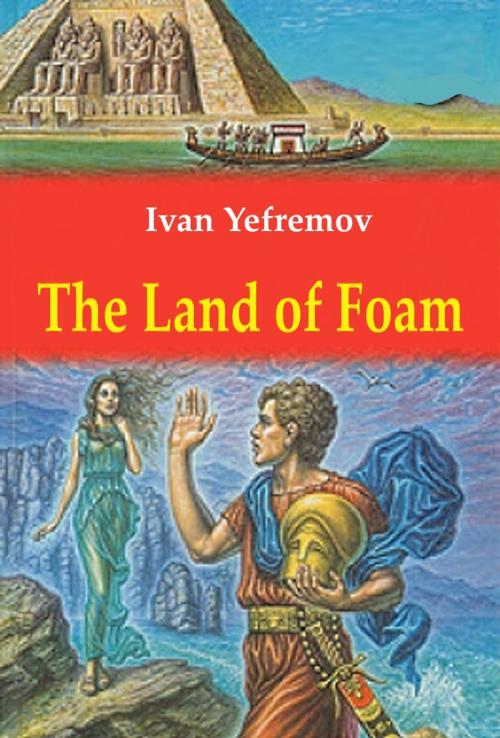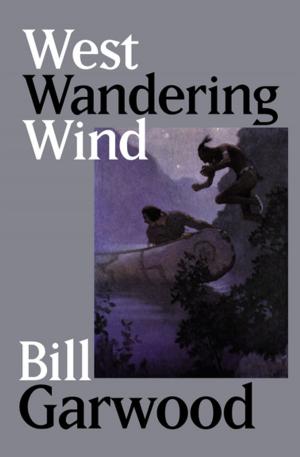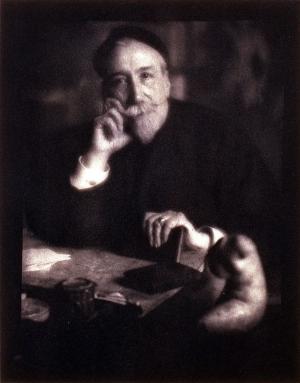| Author: | Ivan Yefremov | ISBN: | 1230002510156 |
| Publisher: | FOREIGN LANGUAGES PUBLISHING HOUSE | Publication: | August 30, 2018 |
| Imprint: | Language: | English |
| Author: | Ivan Yefremov |
| ISBN: | 1230002510156 |
| Publisher: | FOREIGN LANGUAGES PUBLISHING HOUSE |
| Publication: | August 30, 2018 |
| Imprint: | |
| Language: | English |
In 1922, when Ivan Yefremov, at the age of 16, passed his matriculation examination in Petrograd, it is doubtful whether he even thought that one day he might become a writer.
He had been early left an orphan and went through the Civil War as the protégé of a Red Army Regiment. He had read many books, but the one with the wonderful pictures and descriptions of strange animals had always attracted him more than any other.
… Academician Sushkin’s study opened its doors to him without any letters of recommendation — the Academician devoted the youngster the hours torn from the days already packed tight with work; it was something of great significance, something they both had in common, that brought the fifty-five-year-old scholar and the sixteen-year-old boy together.
In 1927 Ivan Yefremov published his first scientific paper A Description of the Habitats of Ancient Amphibians. Other scholarly papers followed one after another and in 1935 their author was granted the degree of Candidate of Science. Five years later he earned the degree of Doctor.
His constant search for extinct animals had taken him to the Far North, Eastern Siberia, Yakutia, the Urals, the Far East, Central and Inner Asia, Mongolia and Western China — always following untrodden paths.
In 1943 the scholar launched out as a writer of popular science-fiction; among his books are the romances Stellar Ships and Baurjed’s Travels.
In 1954 Yefremov finished his book The Road of the Winds, describing a 16, 000-mile journey in search of extinct animals in the windswept steppes of Mongolia. In 1957 he published a new popular-scientific romance The Galaxy of Andromeda the action of which takes place 2,500 years from now.
Yefremov’s is a twin talent, that of the scientist who strives for knowledge and the writer who must speak. Had he not been a scholar he would probably not have been such a writer, and if the scholar had not been an artist he would certainly not have been such a scholar.
In 1922, when Ivan Yefremov, at the age of 16, passed his matriculation examination in Petrograd, it is doubtful whether he even thought that one day he might become a writer.
He had been early left an orphan and went through the Civil War as the protégé of a Red Army Regiment. He had read many books, but the one with the wonderful pictures and descriptions of strange animals had always attracted him more than any other.
… Academician Sushkin’s study opened its doors to him without any letters of recommendation — the Academician devoted the youngster the hours torn from the days already packed tight with work; it was something of great significance, something they both had in common, that brought the fifty-five-year-old scholar and the sixteen-year-old boy together.
In 1927 Ivan Yefremov published his first scientific paper A Description of the Habitats of Ancient Amphibians. Other scholarly papers followed one after another and in 1935 their author was granted the degree of Candidate of Science. Five years later he earned the degree of Doctor.
His constant search for extinct animals had taken him to the Far North, Eastern Siberia, Yakutia, the Urals, the Far East, Central and Inner Asia, Mongolia and Western China — always following untrodden paths.
In 1943 the scholar launched out as a writer of popular science-fiction; among his books are the romances Stellar Ships and Baurjed’s Travels.
In 1954 Yefremov finished his book The Road of the Winds, describing a 16, 000-mile journey in search of extinct animals in the windswept steppes of Mongolia. In 1957 he published a new popular-scientific romance The Galaxy of Andromeda the action of which takes place 2,500 years from now.
Yefremov’s is a twin talent, that of the scientist who strives for knowledge and the writer who must speak. Had he not been a scholar he would probably not have been such a writer, and if the scholar had not been an artist he would certainly not have been such a scholar.















